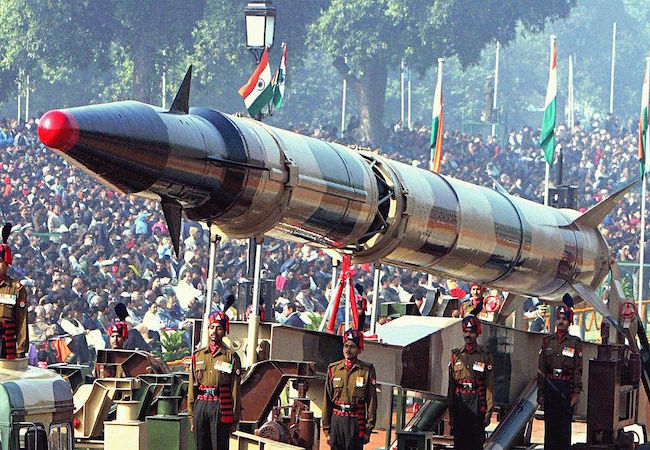
By Zumra Nawaz Cheema
“There is no permanent friend or permanent enemy in international politics but permanent interests, a friend of today may be the enemy of tomorrow and enemy of today may be the friend of tomorrow”.
International system is anarchical and entirely based on realism. Global order is characterized by the principle of “Might is right”, in which there is no place for humane and moral values. Power and interests are two main drivers of states’ behaviors. Weaker and smaller states in hierarchical system are constantly getting exploited by great powers. There is no universal judiciary system which can curtail such a trend in international arena. Existing framework of rules and laws is getting ridiculed by its own founders. A just, rules-based global order has long been touting by powerful states as essential for international peace and security. Yet there is a long history of major powers using international law against other states but not complying with it themselves, and even reinterpreting or making new multilateral rules further serve their interests.
US and other P5 states claim themselves founders of Arms Control and Disarmament initiatives, while they are not acting in accordance with the terms and conditions of the major main apparatus of non-proliferation efforts i.e. Nuclear Non-Proliferation Treaty (NPT) . Pakistan and India are two defacto nuclear weapon states in South Asian region. Owing to pursuing nuclear weapons, both of the states went through huge criticism and economic and military sanctions from the world community.
Western policies towards both of the states have been remained so inconsistent and fluctuating. if someone looks at the western policies toward nuclear India and Pakistan then he will get to know that major powers particularly US the present super power, is being used both the countries, manly Pakistan for its own interests. As Pakistan adapted US alignment policy since the time of its independence in 1947. US remained using Pakistan against Russia and China but at the time of necessity US withdrew to support Pakistan i.e. in the wars of 1965 and 1971, but contrary to support it imposed heavy arm embargo on Pakistan. Later on, when India detonated its atomic bomb in 1974 then again Pakistan came under the military and economic sanctions. While during 1979 to 1988 America provide strong support to Pakistan to fight on its behalf against Soviet’s forces in Afghanistan. In the meanwhile, US intentionally overlooked the Pakistan’s nuclear program as well. Afterwards, at the end of Afghan war US imposed strict sanctions on Pakistan under Pressler amendment. Moreover, in 1998, once again sanctions imposed on Pakistan. Later on in 2001, with the terrorist attack in US, again America coerce Pakistan to fight against terrorism.
If someone noticed Indian side, then he will come to evaluate that India did not confronted with as much aggression and criticism as Pakistan did from world community. Although, after nuclear explosions in 1974, and 1998 India also came under international sanctions but those sanctions were not endorsed by the various great powers i.e. Russia, France and Britain etc. Moreover, since 9/11 US is being inclined towards India rather than Pakistan . Currently India is becoming the largest arms importer and its defense budget is constantly increasing but US and other western powers do not have any concern about it. US considers India more favorable to serve its interests in South Asia because India is an emerging power, with second largest population rate and having vibrant democratic system. Thus under 123 agreement, India had been given by various such nuclear waivers by Nuclear Suppliers Group (NSG) which did not provide to any other non-NPT signatory state. Resultantly, India become able to get material and technology from 48 member of NSG for its nuclear power programme. Furthermore, India is signing different accords with Russia, Britain, Australia, Canada and many other states and can increase its fissile material. Although Pakistan has proved itself enough mature and rational state to safe and secure its nuclear program after A.Q Khan case but still remained unable to get any wavier like India by NSG.
Dichotomy and diplomacy of international community does not ends here, but still Pakistan is at the epicenter of criticism and apprehension from global powers. Many international defense analysts have expressed unnecessary and unjustifiable anxiety on the country’s nuclear program. They are persistently spreading baseless and wrong narratives with respect to Pakistan nuclear capabilities. A recent report published by two American think tanks is symbol to this fact. The authors of the report claimed that Pakistan’s nuclear arsenal may become the world’s third largest over the next five to 10 years. Moreover, at the same time western scholars and security experts recommend various suggestions to halt arm race with India. By thanking to those scholars, I will want to raise some questions by the global powers that why those world powers do not have any concern about their own military advancements? why they do not question the Israeli nuclear capability? why they do not bring the land and naval military modernizations of India under consideration? But they are only focusing on Pakistan nuclear program! Why?




